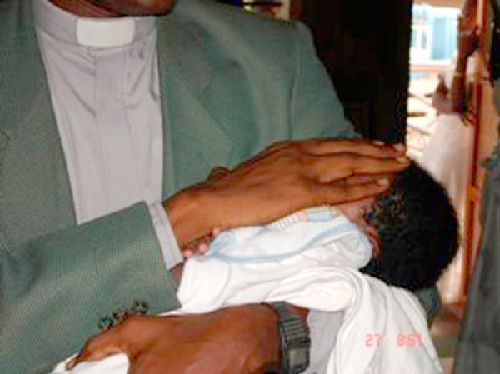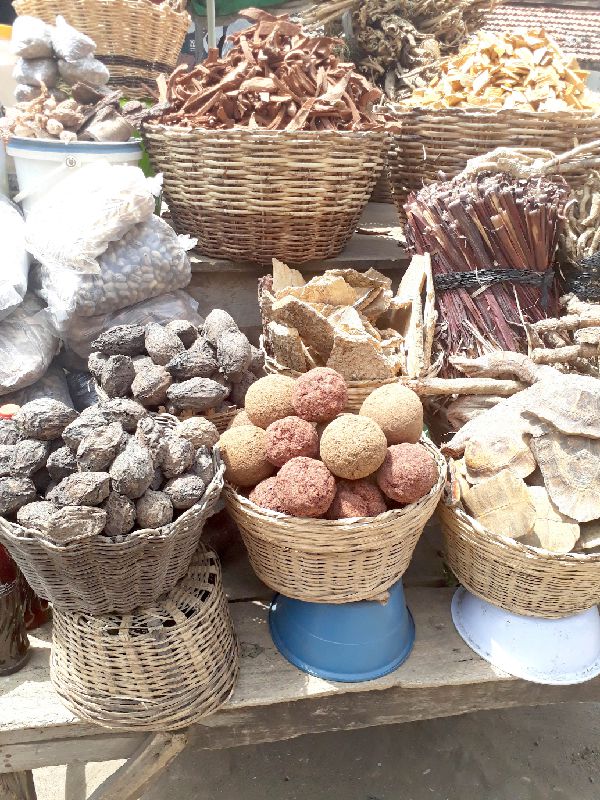
Baby or suicide!
Maame Esi (not her real name), 35, is a successful self-employed lady who owns a number of drinking joints at Nungua, a suburb of Accra.
She is able to cater for her mother, other needs of her extended family and also pays monthly salaries of over 15 attendants who work at her drinking joints, yet she is ridiculed by some members of her society because she does not have a child of her own.
Advertisement
Three years ago, her husband, whom she had been married to for five years, impregnated one of her shop attendants which led to the dissolution of the marriage.
She recounts that prior to the divorce, she had started a treatment process at a private fertility clinic but had to hold on because of the amount of money involved in the procedure.
“We had planned to save money for the process only for me to find out my husband had impregnated one of my girls. I couldn’t handle the embarrassment he put me through but I was willing to work things out with him and move on.
“Unknown to me, his family had already presented drinks to the family of the girl and promised to marry her after delivery.”
Suicidal thoughts
“This was a man I trusted so much and he always gave me the assurance that despite the pressure from both families and friends, he was prepared to go through each phase of the treatment process with me.
Now, he had impregnated someone else, my employee! And everyone knew I was the problem. I even had to shut down the particular joint the girl worked because she resided in that vicinity and almost everyone had heard about our situation,” she narrated.
To make matters worse, her younger sister who had prematurely delivered a set of twin girls died a few days after delivery, leaving behind the twins and a three-year-old boy.

Many women seeking care for infertility resort to herbal medicine.
To her utter shock, rumours had gone round that she had used “juju” to kill her sister so she takes over her children.
She said she had endured numerous gossips and name callings but this one shook her bones; “how could people be this evil and heartless?”, she queried, as she tried to swallow her tears.
“I had been referred to as obonin (Akan word for barren) all these years, others also said I had exchanged my womb spiritually for wealth and I had bottled all the emotions that came with such name callings.. but a murderer! Who would kill her own blood sister just to have her children… that was unbearable.”
“Nobody cared that the family was grieving over the loss of such a young woman, all they were interested in was tarnishing my image because I couldn’t give birth.”
She said there were days where she considered ending her life as she couldn’t bear the pain any longer.
Marriages focusing on children
In typical Ghanaian settings, once a woman gives birth, her name vanishes and she’s called by her child’s name.
It is common to hear Kofi Maame in Akan communities, Akwele Nyɛ in Ga communities or Dzigbordi Tor in Ewe communities — all referring to women by the names of their children.
Dr John Boakye, the Director of the Eudoo Counselling Centre in Accra, told The Mirror that in our society, women were expected to become pregnant within a certain period after getting married. Therefore, those who “missed the pregnancy window period” , were tagged as barren.
He said in some communities, people who died without children were not given a befitting burial because they failed to extend the lineage of their families.
He had also encountered a number of couples whose marriages failed because of childlessness.
“Unfortunately in most of the cases I have handled, the men blamed the women. There was a case of a couple who had been married for 10 years without children and the man’s family pressurised him to get another wife.
“When they came to me, I advised that they visit a fertility hospital together for diagnosis; the man was reluctant for about a month but eventually tests revealed the man was the cause.”
Cumbersome adoption process
Dr Boakye noted that although adoption was an alternative way of having children, many couples were not willing to adopt because of certain cultural beliefs.
The Akans, for instance, say “wo ba ni wo yem” or “obi annwo wo a onnim wo” both implying that children are the biological ones a person bears.
He said there was also stigma towards adopted children as people in the community keep reminding them that they don’t belong.
“I keep telling my clients to do their best and seek medical help but they should keep loving each other if these treatments are not successful. They can consider adoption or decide to mentor some young children.”
He also complained about the cumbersome processes people go through to adopt children, saying that such processes only deter the very few couples who give adoption a try.




